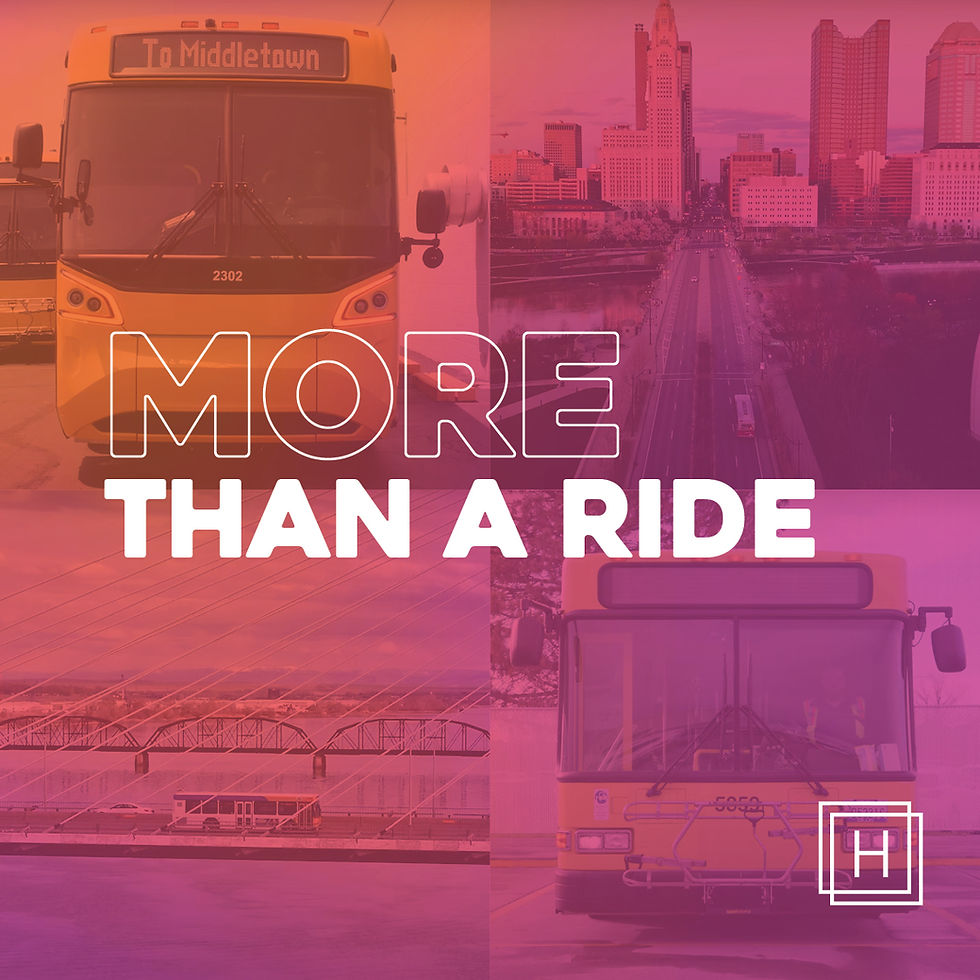Production Takes The Platform: Influencer Marketing and More
- Angela Warf

- Apr 28, 2025
- 3 min read
Updated: Apr 29, 2025
The Hunter production team recently traveled to Pittsburgh, Pennsylvania, to soak up everything we could about influencer marketing at The Platform 2025. From road trip playlists and too much caffeine to the immersive atmosphere of the conference, it was an adventure to remember. But, honestly, it wasn’t about the trip — it was about what we could bring back.
As Hunters, we’re always looking for ways to get better, and this conference delivered.
Here’s what stuck with us:
1. Real Is Better Than Perfect
If there was one message we heard over and over, it’s this: People don’t hate marketing; they hate feeling marketed to.
The stuff that actually works? Content that feels human. It may be messy or a little unpolished, but it’s real. People want to see other people they trust using things they actually like. That’s why micro-influencers are killing it when it comes to engagement. Their content feels like a conversation, not a commercial.
However, if you’re trying to blow something up and reach a ton of people quickly, bigger influencers still get the job done. It really depends on the goal.
What we’re doing: We’re building micro-influencers into our strategies from the start, not as extras, but as part of the team.
2. Comments Are Content Ideas
You know those comment sections most brands ignore? Turns out they’re full of gold.
People are literally telling us what they care about, what they’re confused by and what made them laugh — that’s free research. Christina Le from Plot talked about how their AI tool turns all that feedback into data points and sentiment analysis. One thing is clear: Whether organically or with technology, we should be paying attention.
What we’re doing: We’re watching the comments on our posts like a hawk. If the audience is already talking, let’s meet them where they are.
3. Make It Watchable
The Duolingo team basically said, “Screw it, let’s go full weird,” and it worked.
Their TikToks don’t feel like ads. They feel like the internet. It started with someone dusting off an old owl costume and just … going for it. The video blew up. They kept going. And now their mascot has a fanbase. Meanwhile, app downloads have spiked.
It worked because it didn’t feel like marketing.
What we’re doing: We keep asking ourselves the same question: “Would I watch this if it wasn’t my job?” If the answer is no, then it’s back to the drawing board.
4. Fast Teams Win
This one hit us hard. The best ideas don’t always come out of a five-day brainstorm. Sometimes they spark from one sentence, a loose idea and a team that’s not afraid to hit “record.”
The teams from Duolingo and Liquid Death both talked about how they move quickly — weekly dumps of ideas, no bottlenecks, no overthinking — just smart, fast content that responds to what’s happening now.
What we’re doing: We hold weekly brainstorms where there are no bad ideas and no pressures to pitch “finished” content. These sessions are an open space where we can dive into what’s trending, what’s funny and what’s weird to see what ignites.
5. Let the Numbers Talk
Here’s the honest truth: If a piece of content flops, it flops. It doesn’t matter how long it took, how hard we worked or how much we liked it — if it doesn’t perform, we move on.
It goes the other way, too. If something is working, we run it back, build on it and maybe even turn it into a series.
What we’re doing: We analyze performance data regularly and without ego. The goal is to produce better content, not to prove we were right.
In short, we left The Platform 2025 fired up!
As an agency, we’re not here to make content for content’s sake. We’re here to make work that hits and content that connects, performs and moves people. That means getting more intentional about what we produce and smarter about how we produce it.
We're leaning into the kind of work that is deeply in tune with what audiences actually want to see. We're pulling ideas from the comments, not just from creative decks. We're thinking in series, not one-offs. And we’re not afraid to throw something out if it’s not working.
The Platform 2025 reminded us why we do what we do and, more importantly, where we’re going next.



